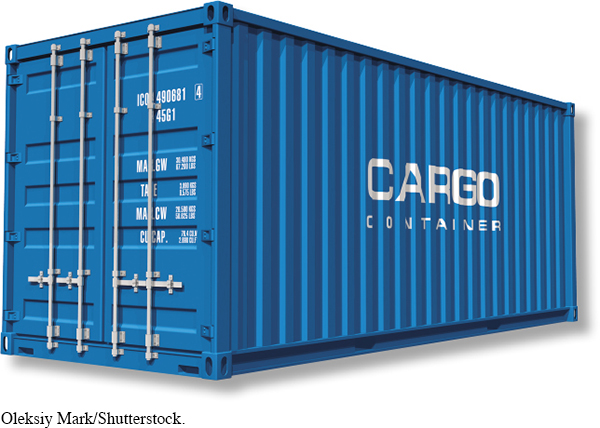The American Promise: Printed Page 891
The American Promise, Value Edition: Printed Page 807
The American Promise: A Concise History: Printed Page 922
Introduction to Chapter 31
The American Promise: Printed Page 891
The American Promise, Value Edition: Printed Page 807
The American Promise: A Concise History: Printed Page 922
Page 89131
The Promises and Challenges of Globalization
Since 1989

CONTENT LEARNING OBJECTIVES
After reading and studying this chapter, you should be able to:
Explain the limited domestic initiatives of George H. W. Bush’s presidency, and explain U.S. interventions in Central America and the Persian Gulf.
Explain the Clinton administration’s search for a middle ground in domestic policy, and outline the factors that guided the administration’s military interventions around the world.
Describe the debates over globalization and its effects on the United States.
Explain George W. Bush’s key domestic initiatives and his foreign policy of preemption and unilateralism, including the invasion of Iraq in 2003.
Describe the historic 2008 presidential election and President Obama’s response to domestic and foreign challenges.
IN HIS MOSCOW HOTEL ROOM IN APRIL 1988, RONALD REAGAN’S national security adviser, Colin L. Powell, contemplated Soviet premier Mikhail Gorbachev’s reforms that would dramatically alter the Soviet Union’s government and economy. Powell recalled, “I realized that one phase of my life had ended, and another was about to begin. Up until now, as a soldier, my mission had been to confront, contain, and, if necessary, combat communism. Now I had to think about a world without a Cold War.”
Colin Powell was born in Harlem in 1937, the son of Jamaican immigrants who worked in a garment factory. At the City College of New York, he joined the army’s Reserve Officers Training Corps (ROTC) program and, on graduation in 1958, began a lifelong career in military and public service, rising to the highest rank of four-
The American Promise: Printed Page 891
The American Promise, Value Edition: Printed Page 807
The American Promise: A Concise History: Printed Page 922
Page 892Powell’s sense that Gorbachev’s reforms would transform the Cold War became a reality more quickly than anyone anticipated. Eastern Europe threw off communism in 1989, and the Soviet Union disintegrated in 1991. Throughout the 1990s, as the lone superpower, the United States deployed military and diplomatic power during episodes of instability in Latin America, the Middle East, Eastern Europe, and Asia, almost always in concert with other major nations. In 1991, the United States led a United Nations–
In the 1990s, Powell remarked that “neither of the two major parties fits me comfortably.” Many Americans seemed to agree: From 1988 to 2016, they elected two Republicans—
All four presidents supported globalization. As capital, products, information, and people crossed national boundaries in greater numbers and at greater speed, a surge of immigration rivaled the stream that had brought Powell’s parents to the United States. Powell shared the worldwide shock when in September 2001 terrorist attacks in New York City and Washington, D.C., exposed American vulnerability to horrifying threats. The United States sent soldiers into Afghanistan to overthrow the government that had harbored the attackers. The administration’s response to terrorism overwhelmed Secretary of State Powell’s commitments to internationalism, multilateralism, and military restraint when, in 2003, George W. Bush began a second war against Iraq. The unpopularity of that war and a severe financial crisis helped the Democrats regain power and elect Barack Obama as the first African American president in 2008. Obama pursued a more multilateral approach and improved the U.S. image abroad. Nonetheless, although the Iraq War ended, the Middle East grew more unstable and terrorism remained a threat around the world.
CHRONOLOGY
| 1988 |
|
| 1989 |
|
| 1990 |
|
| 1991 |
|
| 1992 |
|
| 1993 |
|
| 1994 |
|
| 1995 |
|
| 1996 |
|
| 1998– |
|
| 1999 |
|
| 2000 |
|
| 2001 |
|
| 2002 |
|
| 2003 |
|
| 2004 |
|
| 2005 |
|
| 2008 |
|
| 2009 |
|
| 2010 |
|
| 2011 |
|
| 2012 |
|
| 2015 |
|